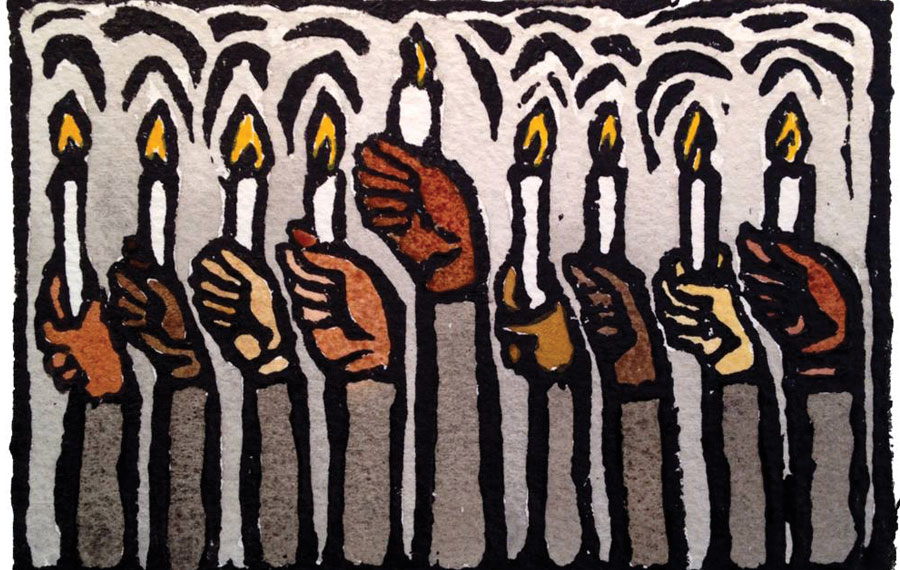
There’s a powerful story in the Nov. 26 issue of Time magazine titled, “I Love America. That’s Why I Have to Tell the Truth About It.” It’s written by Pulitzer Prize-winning novelist Viet Thanh Nguyen.
In his piece, Nguyen addresses the criticisms of America and other countries that he included in other writings, which prompted protests from a few U.S. military veterans. Nguyen explained that those criticisms were really a sign of love.
“I made such criticisms not because I hated all the countries that I have known but because I love them,” he writes. “My love for my countries is difficult because their histories, like those of all countries, are complicated.”
I understand Nguyen’s way of expressing a “difficult” love through criticism. Love is a complicated emotion. And criticism can spur improvement and help make things better.
What I would suggest is that if we don’t complement criticism with progress, we can create a distorted view of reality. Take, for example, the issue of racism in America.
In recent years, there’s been a popular meme contending that America is an inherently racist country. As The Washington Post’s Eugene Robinson declared in 2015, “America will only end racism when it stops being racist.” Even President Barack Obama said at the time that “racism remains a blight that we have to combat together.”
Since President Donald Trump entered the White House two years ago, the racism meme has only gotten louder. From the continued expansion of Black Lives Matter to professional football players protesting police violence against Blacks to white supremacists making more noise, the implication has been that racism is alive and thriving in America.
But is it? Let’s pull back and look at the bigger picture.
According to a 2017 report in The Economist, “Americans appear far less racist than in the past. Only 4 percent of Americans supported interracial marriage in 1958. By 1997 that was 50 percent; today it is 87 percent.”
Also, according to The Economist, “racially and ethnically motivated hate crimes reported to the FBI fell 48 percent between 1994 and 2015.”
How about racist hate groups like the Ku Klux Klan? According to a 2012 report in Slate, the KKK is “clearly contracting, since its rolls have shrunk from millions in the 1920s to between 3,000 and 5,000 today.”
“While we must always stay vigilant and pounce any time racism rears its ugly head, we also have an obligation to show the full picture.”
In a recent podcast interview on City Journal, Hoover Institution Senior Fellow Shelby Steele, who specializes in the study of race relations, multiculturalism and affirmative action, also touched on the theme of racial progress:
“The impulse of racism is something that all human beings, I think, have to come to terms with, struggle against, learn all sorts of moral lessons from. But it is not, I don’t believe at any rate … the problem that Black America faces today. And I think one of the most unrecognized features of American life is the enormous moral progress America has made since the ’60s.”
Steele, who is Black, added: “I grew up in segregation. I know what that was like. And when I look at my life today in America, everything is wide open. I can do anything I want. … I don’t detect any will in the society, in American society, to oppress Blacks anymore. Any hint of wanting something like that would be utterly ruinous to a person, to their reputation. They would pay a terrible price for it.”
None of this is to suggest that racism is dead, or even dying, in America. As Steele reminds us, the “impulse of racism,” however shameful, is something that may never be eradicated.
What the new reality does suggest, however, is that the long arc of racial justice in America is going in the right direction.
You probably wouldn’t know about this progress from watching the evening news, for the simple reason that good news doesn’t sell. It’s hard to imagine a special report on CNN on how “Americans appear far less racist than in the past.” How sensational would that be?
And yet, we need those reports. While we must always stay vigilant and pounce any time racism rears its ugly head, we also have an obligation to show the full picture. Bad news may be more lucrative than good news, but good news can often give us a more balanced view of reality.
That’s why I wrote this column. Just like Viet Thanh Nguyen, I love America, and I have to tell the truth about it.
And part of that truth is: Just as Jews light a candle for every night of Hanukkah, America has fought its own darkness by lighting a candle of justice for every generation.
For me, it is those inexorable candles of hope, however hazy they may appear at times, that are the real drama of this country.
Happy Hanukkah.





















 More news and opinions than at a Shabbat dinner, right in your inbox.
More news and opinions than at a Shabbat dinner, right in your inbox.